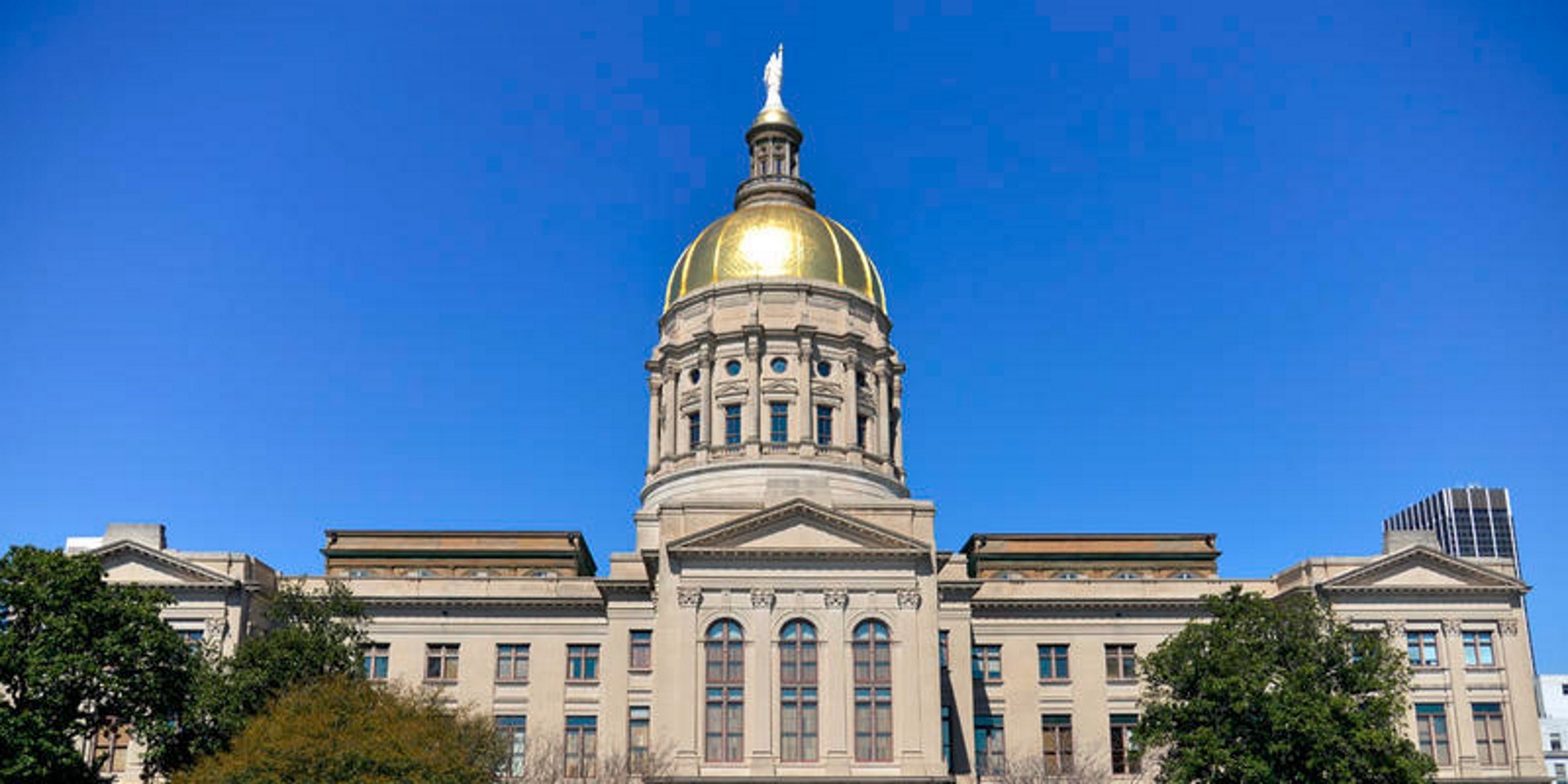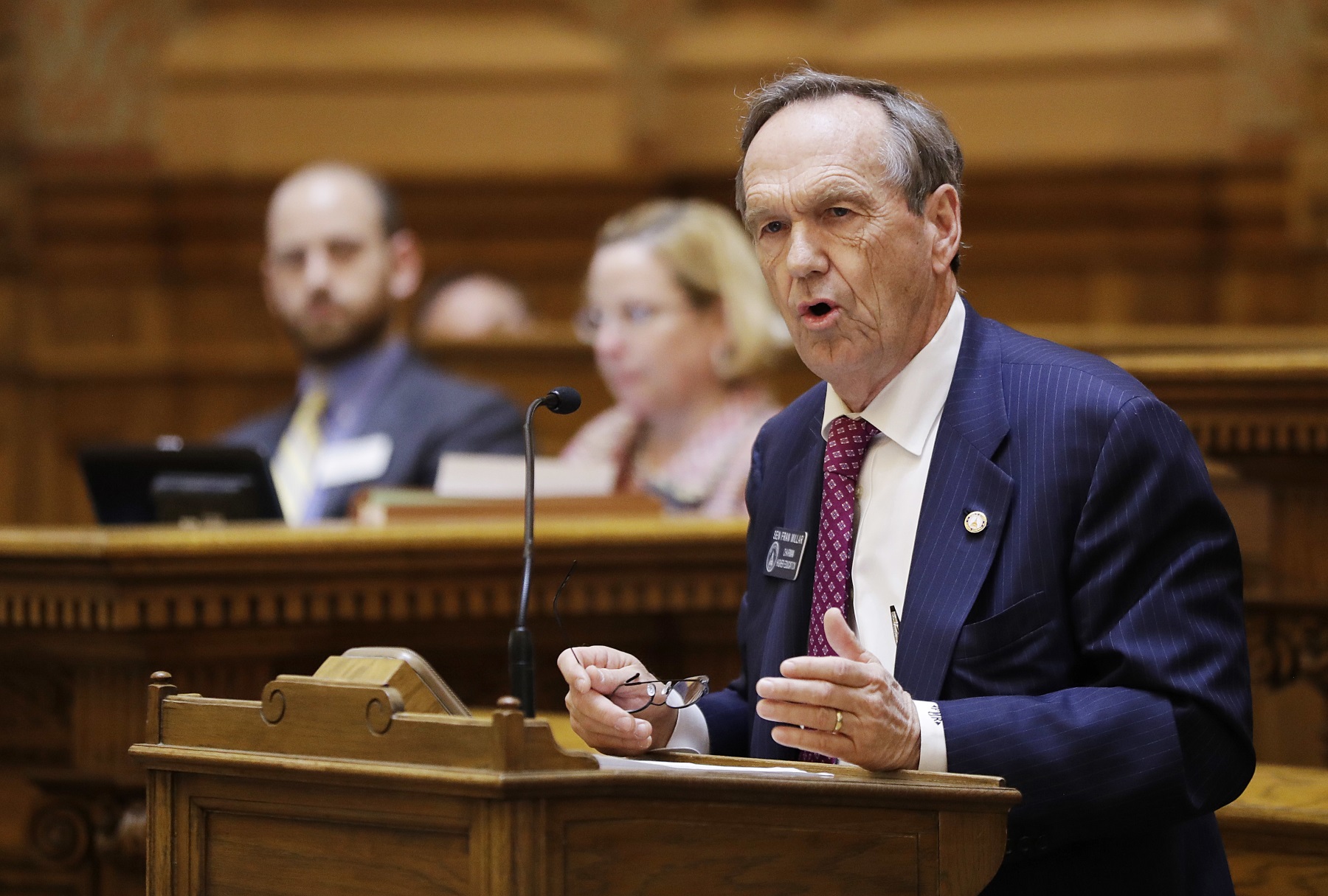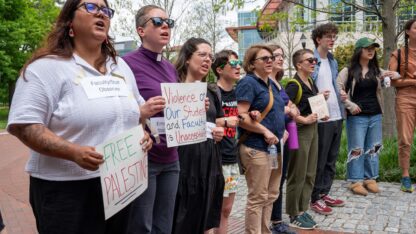GOP election needs could dominate 2022 Georgia session

Nick Nesmith / WABE
Georgia’s General Assembly opens an election-year session Monday that could be dominated by Republican primary politics, with Gov. Brian Kemp facing internal challengers and some other key Republicans reaching for higher office.
Times are good in some ways for lawmakers, with billions in the bank to spend on election-year pay raises and other goodies. Lawmakers are also likely to find broad agreement on proposals to reform mental health.
With the University of Georgia playing for a national football championship Monday, the session’s first week could have a slow start. But with former President Donald Trump opposing Kemp and backing an insurgent challenger for lieutenant governor, a GOP race to the right appears likely as Republicans compete for their party’s nomination on May 24.
That dynamic has already been on display with Kemp endorsing plans to end requirements for permits to carry guns, while primary opponents David Perdue and Vernon Jones slag Kemp for dragging his feet on the issue.
Democrats won’t be immune from election-year political needs either, with a number of the party’s lawmakers seeking statewide office.
Tensions may be most evident in upper chamber, where Senate President Pro Tem Butch Miller of Gainesville is running for lieutenant governor against Trump-endorsed state Sen. Burt Jones of Jackson. Miller has been rolling out red-meat proposals meant to outflank Jones. They include joining Jones in proposing to abolish the state income tax, which provides roughly half of Georgia’s $28 billion in state revenue, and prohibiting absentee ballot drop boxes less than a year after Republican lawmakers sharply limited their use.
“We would all be kidding ourselves if we acted like electoral politics on these races in front of us were not going to impact the policy discussion we’re going to have in the Senate,” said state Sen. Jason Anavitarte, a Dallas Republican.
Sen. Jones thus far appears to be banking on the Trump nod and hasn’t been rolling out new proposals.
Republican Lt. Gov. Geoff Duncan said he hopes to be a “steadying hand inside the legislative process,” but it’s unclear whether he’ll have much influence, since he isn’t seeking another term after making a sharp break with most Republicans over the 2020 election and other issues.
“You’re certainly always concerned about folks that deliver legislation into this body only for political purposes and for headlines. That certainly is not a healthy place,” Duncan said. “I believe it creates a divide. But I’m going to focus hard on making sure that we pass legislation that matters and positively moves the ball forward.”
Things could be different in the House, where Speaker David Ralston, a Blue Ridge Republican, vows that he won’t let political needs distract from more substantive priorities.
“We’ve got some important things to get done — public safety, mental health, the budget,” Ralston said. “These are things that I think we can make a difference in the lives of Georgians in doing. And, you know, I’m not going to be distracted by what other people are doing in their campaigns.”
Democrats are openly hopeful that they will benefit in November from opponents who can’t paste the splinters of the Republican Party back together, especially with Stacey Abrams facing no internal Democratic opposition in her run for governor.
“I think that they’re going to create some problems for themselves that hopefully benefit the Democrats over time because we’ll have a relevant message that unifies Georgia rather than separates it,” said House Minority Leader James Beverly, a Macon Democrat.
He said Republicans are “going to have to decide who is their true master,” whether that is Trump and his followers or Kemp and the business community.
“They’re going to have to decide where they’re going,” Beverly said. “The electorate is going to have to figure out which of those two groups they agree with.”








